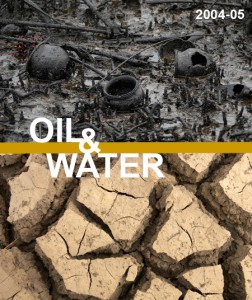- About this Program
- 2012 Conflict in the 21st Century
- 2011 Our Nuclear Age: Peril and Promise
- 2010 South Asia: Conflict, Culture Complexity, and Change
- 2009 Cities: Forging an Urban Future
- 2008 Global Poverty and Inequality
- 2007 Global Crises: Governance and Intervention
- 2006 The Politics of Fear
- 2005 Oil and Water
- Class
- International Symposium
- International Symposium
- Special Events
- Workshops
- 2004 Dilemmas of Empire and Nation Building
- 2003 Sovereignty and Intervention
- 2002 Global Inequities
- 2001 Race and Ethniciity: A Global Inquiry
- 2000 Global Games: Sports, Politics, and Society
- Symposium
- 1999 Global Crime, Corruption, and Accountability
- 1998 Exodus and Exile: Refugees, Migration, and Global Security
- 1997 The Future of Democracy
- 1996 Religion, Politics, and Society
- 1995 20/20 Visions of the Future
- 1994 Ethnicity, Religion and Nationalism
- 1993 Transformations in the Global Economy
- 1992 - International Security: The Environmental Dimension
- 1991 Confronting Political and Social Evil
- 1990 The Militarization of the Third World
- 1989 Drugs, International Security and U.S. Public Policy
- 1988 Foreign Policy Imperatives for the Next Presidency
- 1988 Covert Action and Democracy
- 1987 The West Bank and Gaza Strip
- 1986 International Terrorism
- News
- Press Clips
- Calendar
- Resources
EPIIC Archives
2005 Oil and Water

|
|
Oil and water have been critical to the development and sustainability of civilizations, states, and communities. As world population expands, as economies and industries grow, what is the future of these vital resources?
How finite are oil and water? Is oil or water scarcity imminent in certain regions in the next half century? In the next decade? Are there or will there be technological innovations to redress scarcity or address maldistribution? How extensive or irreversible is resource degradation?
We will be investigating both petropolitics and hydropolitics, as oil and water provide opportunities for both cooperation and conflict. What is the relationship between oil and national security? What are the links between resource scarcity and the potential for violent intrastate and interstate conflict from the water disputes over the Nile River and its nine co-riparians to the recent Persian Gulf Wars? What is the relationship between water and human rights? What are the implications of NATO's Article 24, vowing to prevent 'the disruption of the flow of vital resources'?
Oil fields and water systems have been strategic targets, whether in the era of da Vinci and Machiavelli with their plans to divert the Arno River in the war between Pisa and Florence in 1503; or in the 1800s with General Grant cutting the levees in Vicksburg in the American Civil War in 1863; or in the 1960s with the U.S. targeting the dikes of the Red River Delta during the Vietnam war; or the 1990s with the devastation of the Marsh Arabs in Southern Iraq by the artificial Saddam River. What current oil and water targets are vulnerable as contemporary military or terrorist targets?
What is the nature of the international oil industry? How is gasoline priced around the world? What are the politics, the economics, of U.S. National Energy Strategy?
Should water be considered a common good? As the consumption of water doubles every year, more than twice the rate of the increase in human population, should the distribution of water be privatized or remain a public resource?
What is the impact of the international financial institutions (IFIs) - World Bank, the IMF and the World Trade Organization - on oil and water development? With Chad and Equatorial Guinea as emerging "petrostates," what are the arguments about the "resource curse" and economic development? How do extractive industries and large development projects such as dams impact indigenous peoples from the Kayapo of Brazil's Amazon to the Cree of Northern Quebec?
What is and will be the impact of climate change on oil and water? On glaciers from Antarctica to the Himalayas? What is the relationship between these resources and environmental refugees and environmental degradation? Are drought and famine man-made or acts of nature? What is the impact of the extraction and use of oil and the pollution of water on increasing health problems and epidemics? On agriculture and sanitation?
Utilizing normative scenarios and exploratory modeling, join prominent global international security thinkers, scientists, economists, ecologists, environmental experts, industry analysts, engineers, journalists, and activists in thinking about the future of these necessary resources.
Working with many Tufts, Fletcher and external mentors, potential student research can range from the search for extraterrestrial water on Mars to the development of Roman aqueducts; from desertification in China as the Gobi threatens Beijing, to conflict in the Narmada Valley in India; from the commodification of nature via Vivendi and Suez to the recent misrepresentation of Oman's oil reserves or the massacres over the Chixoy Hydro dam in Guatemala.
EPIIC will be working closely with the new University-wide initiative of Water: Systems, Science and Society (WSSS) and will collaborate with organizations as diverse as The Environmental Change and Security Project of the Woodrow Wilson International Center for Scholars; The Bangladesh Centre for Advanced Research; the International Consortium of International Journalists; Foreign Policy Magazine of The Carnegie Endowment for International Peace; the Harvard Middle East Water Project; The Royal College of Defense Studies; the Institute for Policy Studies' Sustainable Energy & Economy Network; Cultural Survival and the United States Military Academy.

